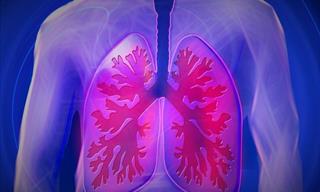Trouble breathing. Chest tightness. Wheezing. These are just some of the trademark symptoms of asthma, a chronic inflammation of the bronchial airways that can often make breathing a struggle. In the US, asthma rates are at an all-time high, with one in 12 people suffering from the condition. So why are asthma rates on the increase?
That's a complicated question to answer. For a while, experts thought that our over-enthusiasm for antibiotics and cleanliness may have over-sterilized our living and working environments, leaving our bodies and lungs less resilient to minor irritants. However, newer research has suggested that asthma arises due to a mixture of both environmental and genetic factors.
Chitra Dinakar, a clinical professor of medicine at Stanford University and a spokesperson for the American College of Allergy, Asthma and Immunology, states that "we call asthma a syndrome, not a disease, because it's very complex. The way it presents or the course it takes are variable and not easily defined."
So how can you tell if your breathing problems are caused by asthma? Keep reading to find out.
You Cough When You Laugh
Or you cough at night, or when exercising. These type of coughing fits are all associated with asthma. This doesn't rule out other respiratory conditions, but if you're also experiencing shortness of breath, asthma is the likely culprit.
Your Breathing Problems Seem Linked to Your Allergies
Many common allergens are also asthma triggers. If you have breathing problems after spending time around cats or other animals, or around pollen - and especially if you're experiencing other allergy symptoms like sneezing or itchy eyes - there's a good chance that you have asthma.
Other Triggers Seem to Set Off Your Symptoms
Along with the aforementioned allergens, "tobacco smoke and cold or dry air are also common asthma triggers," Dinakar says. Furthermore, if your breathing problems seem to increase whenever you go to work, or to a specific location, that's a red flag that you're dealing with asthma related to an environmental irritant.
You Had Asthma as a Child

It's very common for adult asthma sufferers to have had asthma as a child. In many cases, these people learned to avoid certain triggers, so they stopped experiencing the symptoms. In many cases, this leads to them mistakenly assuming that they have outgrown asthma. Symptoms usually return at the start of a new exercise regimen, or when frequently in the company of smokers. Therefore, if you suffered from asthma as a child and are experiencing its hallmark symptoms, there's a good chance that your current breathing problems are asthma-related.
You Wheeze When You Exhale, Not When You Inhale
Dinakar says that it's very easy to confuse asthma-related wheezing to a similar condition called rhonchi, which is a kind of rattling or chest congestion that can indicate other breathing-related health conditions such as Chronic Obstructive Pulmonary Disease or bronchitis. There is one way to tell rhonchi and wheezing apart: asthma-related wheezing tends to be more of a high-pitched sound that is noticeable when you're breathing out - as opposed to a congested sound that you notice when breathing in.
Your Inhaler Doesn't Work

This might sound obvious. However, if you have an inhaler and it helps alleviate your breathing difficulties, the chances are high that you're dealing with asthma. On the other hand, some patients do not respond well to their asthma inhalers, but they don't always think about notifying their doctor. If your inhaler isn't helping, that is a very good indicator that asthma isn't your issue.
Bottom Line: Go See a Doctor
Dinakar emphasizes that differentiating asthma from other respiratory conditions is difficult to do. If you're experiencing breathing problems, that is not something you should mess around with. Chest tightness or pressure could be a sign of an impending heart attack. Go see your doctor so you can figure out what's going on.
Source: prevention
 Go to BabaMail
Go to BabaMail




























